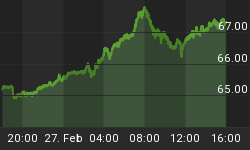In yet another trend the older generation will have problems comprehending, a 3D-printed plant-based meat startup has just raised $135 million, bringing its total funding to date to over $170 million.
The company, Israel-based Redefine Meat, said it will use the funds to set up two new production factories and to expand its “non-conventional” meat offerings.
The company is already supplying restaurants in Israel and abroad with its ground beef, burger, kebab, cigar, and sausage products. Now, it is planning to “print” four new meatless types of meat, including a lamb flank and beef skewer.
Redefine Meat uses digital processes and plant-based ingredients to produce high-protein, zero-cholesterol steak alternatives.
The company’s chief executive and founder, Eshchar Ben-Shitrit, has already noted that vegans are complaining that their meat is too much like … meat.
But isn’t about vegans … this is a trend to change the way the entire world eats.
“Personally, I don’t eat meat. I think it’s wrong to kill animals and eat them. But in order to get the flexitarian (flexible vegetarian), it’s better to disregard the opinion of the vegan,” Ben-Shitrit said
Plant-based meat alternatives are nothing new. The boom in demand in the last several years from vegetarians has fed a surge in innovation.
While plant-based minced meat has graced store shelves for some time now, a meat cut that has the taste and the appearance of a steak has long been considered beyond reach.
Currently, printed steak is on the menus in a few high-end restaurants in Israel and Europe with prices ranging from $25 to $40.
Redefine Meat nows says it can 3D print 10kg of protein per hour, combining soy, pea, chickpeas, beetroot, nutritional yeast, and coconut fat.
Back in August, a team of Japanese scientists created a 3D printed side of “synthetic beef”, which they say is not so different in taste and texture to wagyu beef, which normally costs $200 per pound and more than $30,000 for an entire animal.
In 2020, the alternative meat industry was estimated to be worth around $7 billion.
Barklays, a British multinational investment bank, recently posted its estimate that the “vegan” meat market could be worth $140 billion by 2029. In other words, that would account for about 10% of the $1.4 trillion global meat industry.
“While lab-based meat is still likely several years away from hitting supermarket shelves, plant-based protein continues to gain ground vs. its animal-based counterpart, and we expect this trend to continue for the foreseeable future,” the report said.
As weird as it sounds, the market is actually in need of lab-created or 3D-printed meat. An ongoing meat shortage caused by the pandemic might just speed up mainstream acceptance of it.
While many meat-related businesses were forced to scale back production in 2020 due to the Covid-19 pandemic, plant-based food companies increased their workforce.
In the U.S., sales of plant-based meat grew 42% in 2020 compared with 2019.
Fact is that the pandemic changed people's opinion about plant-based eating and its role in protecting personal health and the environment.
Several other factors such as the pandemic itself and subsequent food supply chain issues, labor shortages and massive demand, have created meat shortages and high prices.
Since October 2020, the price of meat, poultry and fish have all risen almost 12% compared to 2019, with meat packers profit margins soaring to 300%. The price of beef and veal increased 20.1% between October 2020 and October 2021.
















